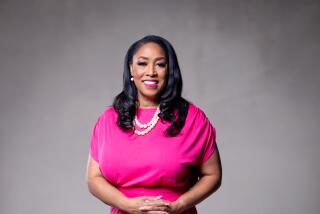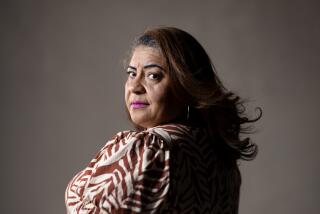Black Educator Picked to Lead L.A. United Way
Herbert L. Carter, a black educator who a generation ago was battling the United Way of Greater Los Angeles to improve its services for minorities, has been appointed chairman of the board of the $88-million-a-year charity.
Carter, 55, who has been a volunteer for the umbrella organization for 21 years, will take over the reins of the 109-member governing board on June 1. Officials said the appointment of Carter, who is vice chancellor of Cal State Long Beach, exemplifies the organization’s effort in recent years to shift more power to minorities.
“His years of experience and involvement with United Way, coupled with his untiring commitment to improve the quality of life in our community, will help make the organization an even more dynamic and effective force in Greater Los Angeles,” said Irwin S. Field, the charity’s outgoing board chairman and president of Liberty Vegetable Oil Co. of Santa Fe Springs.
United Way has in the past been criticized for its dominance by white males and for failing to address itself to the social and health needs of minorities. When Carter first became a member of a standing committee there were no women and only three minorities in leadership roles. Today, 10 of the 17 committees are chaired by minorities and women.
Carter said his appointment signifies how the charity is promoting minorities not only within its own ranks but in the community programs it supports. “My appointment speaks volumes. Ethnic diversity isn’t just a platitude, it’s a reaffirmation of what United Way is about,” he said in an interview Tuesday.
Carter will oversee a force of 50,000 volunteers who raise funds for about 350 health and social organizations in Los Angeles and parts of San Bernardino and Kern counties. The Los Angeles United Way is the second largest in the nation after the Chicago group.
Carter’s introduction to United Way was adversarial. He and a group of other black activists met with United Way officials in 1968 to discuss complaints about service to the minority community.
‘Ethnic Concerns’
“At the time there was not a great deal of sensitivity to the ethnic concerns in the community. United Way dollars were allocated not by social need but by tradition,” he recalled. “One of the board members told me that instead of attacking the organization I should join up and help shape it the way it ought to be.”
In the ensuing years, he worked his way up the volunteer ladder, serving in numerous committee positions and promoting minority volunteerism as a way to effect change. Two years ago, he was instrumental in organizing United Way’s Black Partnership Development Council. Similar programs have since been formed for Asians and Latinos.
In recent months, United Way has begun a strategic planning program to redefine its mission in the ethnically changing region. “We have to do that or go the way of the dinosaurs,” Carter said. “United Way has been perceived as a staid bureaucratic organization removed from the community, doing only what has been ‘safe.’ What we are now after is a sense of venture to prevent problems in the first place, rather than come along later and try to cure them.”
Carter conceded there was much left to be done. “Social change does not come in cataclysmic outbursts. It’s day to day addressing of issues and building people into the process so they are part of the change,” he said.
More to Read
Sign up for Essential California
The most important California stories and recommendations in your inbox every morning.
You may occasionally receive promotional content from the Los Angeles Times.










![[20060326 (LA/A20) -- STATING THE CASE: Marchers organized by unions, religious organizations and immigrants rights groups carry signs and chant in downtown L.A. "People are really upset that all the work they do, everything that they give to this nation, is ignored," said Angelica Salas of the Coalition of Humane Immigrant Rights. -- PHOTOGRAPHER: Photographs by Gina Ferazzi The Los Angeles Times] *** [Ferazzi, Gina -- - 109170.ME.0325.rights.12.GMF- Gina Ferazzi/Los Angeles Times - Thousands of protesters march to city hall in downtown Los Angeles Saturday, March 25, 2006. They are protesting against House-passed HR 4437, an anti-immigration bill that opponents say will criminalize millions of immigrant families and anyone who comes into contact with them.]](https://ca-times.brightspotcdn.com/dims4/default/34f403d/2147483647/strip/true/crop/1983x1322+109+0/resize/840x560!/quality/75/?url=https%3A%2F%2Fcalifornia-times-brightspot.s3.amazonaws.com%2Fzbk%2Fdamlat_images%2FLA%2FLA_PHOTO_ARCHIVE%2FSDOCS%2854%29%2Fkx3lslnc.JPG)